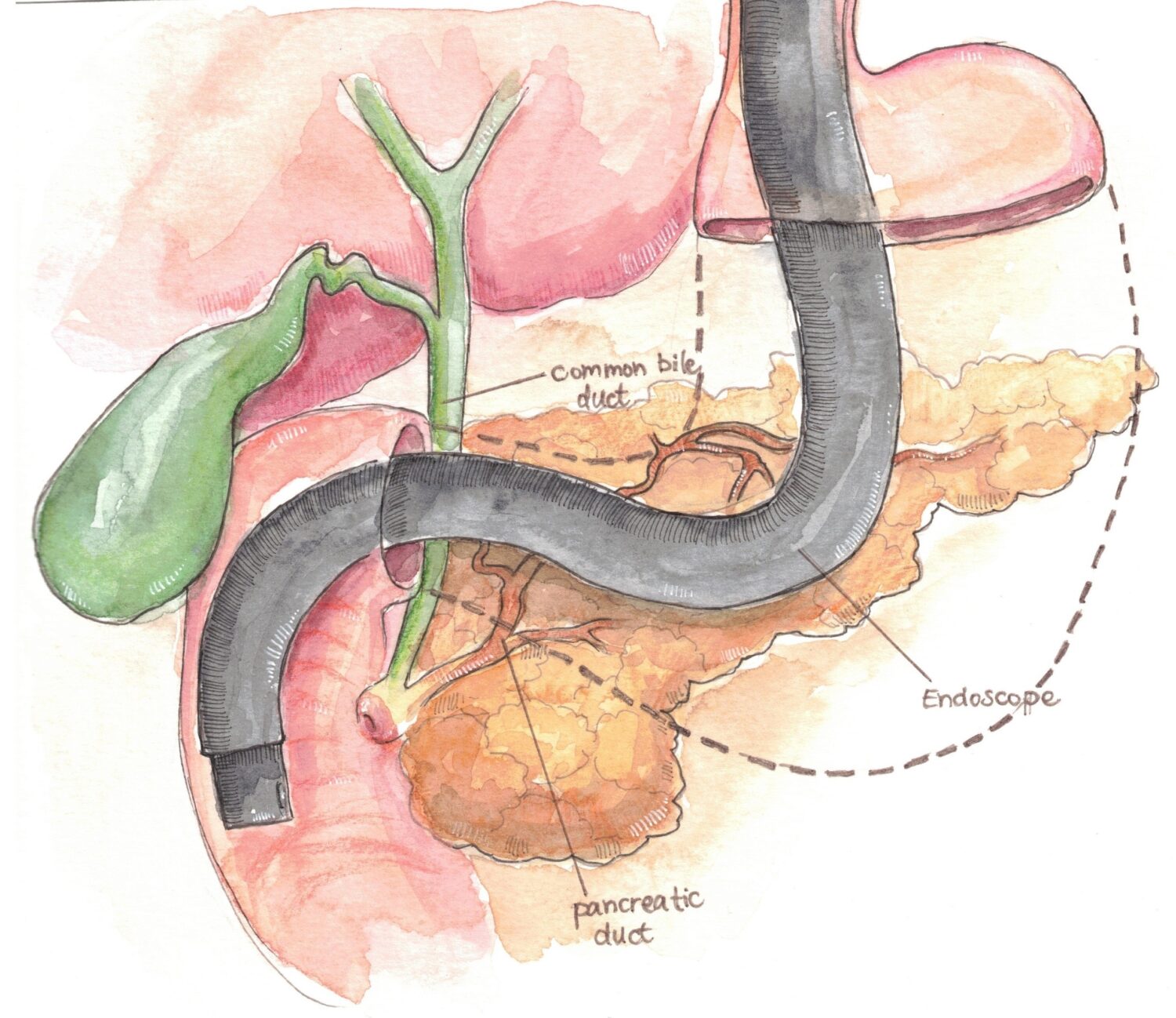Endoscopic retrograde cholangiopancreatography
Endoscopic retrograde cholangiopancreatography (ERCP) enables:
- examination of the bile and pancreatic ducts,
- removal of gallstones from the bile ducts,
- dilation of narrowed areas of the bile duct,
- placement of bypassing tubes (stents) within areas of pathological changes.
The procedure is performed using a flexible optical instrument called a duodenoscope, which is inserted orally and approximately the size of a finger.

Before the procedure
Inform your doctor about:
- medication allergies (especially to medications containing iodine),
- chronic illnesses.
Prior to the procedure, you must avoid eating or drinking for at least 6-8 hours (with the last meal recommended to be the previous evening). For safety reasons, you will be asked to remove dentures, lip and tongue piercings.
During the procedure
Prior to the procedure, you must sign a consent form for conducting the procedure.
A vein cannula will be placed in your arm for the administration of relaxing medication.
During the procedure, you will lie on a special table and you may be positioned on your left side, facing down or facing up. A plastic mouthpiece is placed between your teeth and lips to prevent damage to the teeth and duodenoscope. The duodenoscope is then gently inserted through the mouthpiece into the esophagus, stomach and duodenum. At the opening of the pancreatic and bile ducts, the doctor administers contrast agent into the ducts, making them visible on the X-ray screen. Further actions depend on the findings during the examination and the pathological changes visible on the X-ray screen.
If a stone is found in the bile duct, it will be removed from the duct into the intestines, if possible.
The procedure usually lasts between 45 to 90 minutes.
After the procedure
Following the procedure, you may experience throat discomfort and bloating due to the air introduced during the examination. Antibiotic treatment and fasting may be necessary until the end of the examination day. The response will be provided by the doctor who performed the procedure immediately after the examination and it will be sent electronically to your treating physician.
Possible complications
- Pancreatitis, accompanied by abdominal or back pain, nausea and vomiting,
- inflammation in the liver or bile ducts,
- bleeding, which is usually self-limited,
- perforation of the intestinal wall,
- allergic reactions to medications,
- exacerbation of chronic diseases or acute cardiovascular diseases.
If you experience fever, weakness, abdominal pain or vomiting following the procedure, please inform your healthcare provider immediately.
Endoscopy Centre
Internal Medicine Clinic of Tartu University Hospital
L. Puusepa 8, Wing J, 3rd floor
Compiled by: Marika Kukk, head nurse of the gastroenterology department
Illustrated by: dr Ana Botchorishvili
Translated by: Anastasia Vandõš
2023